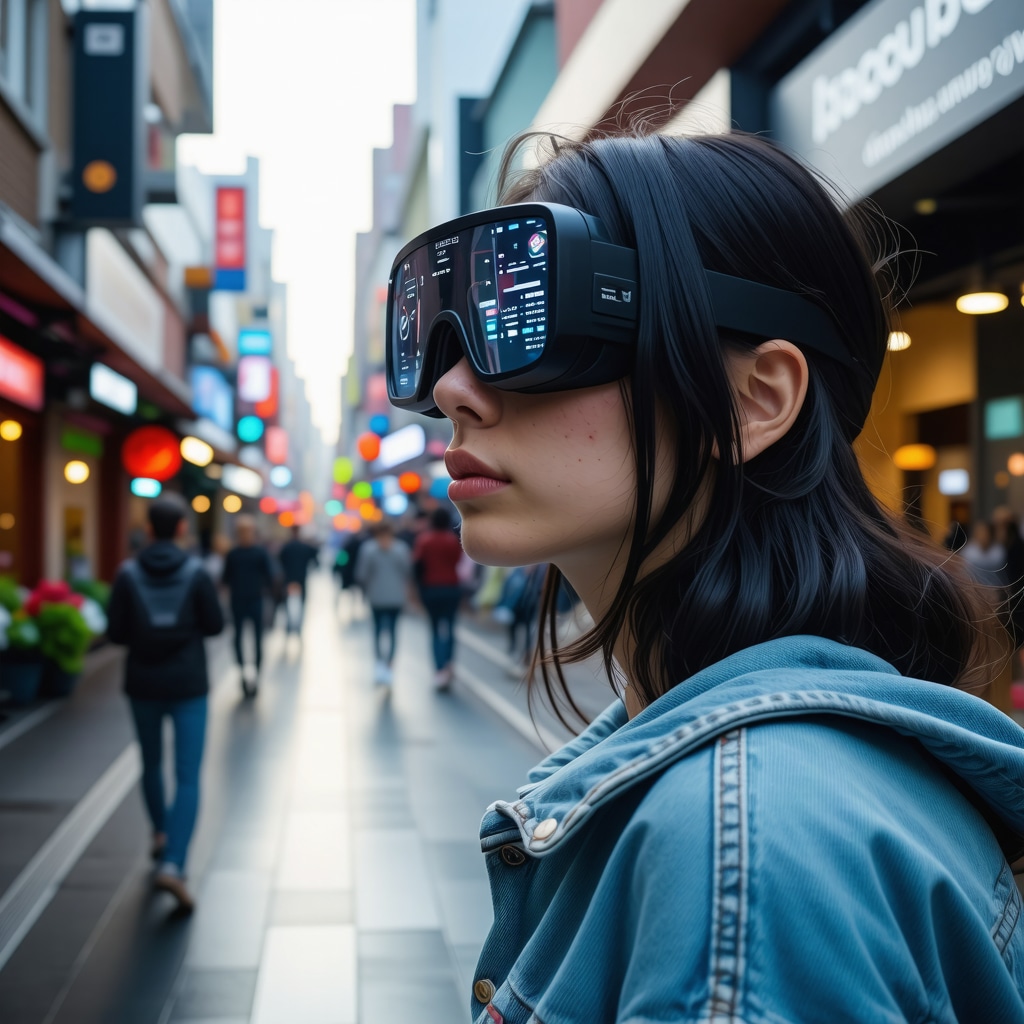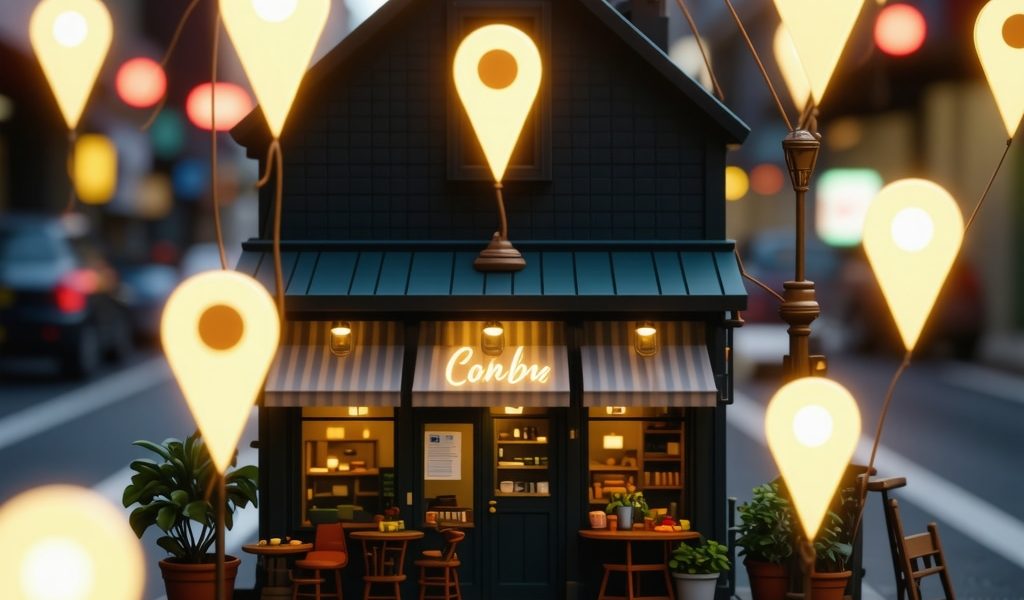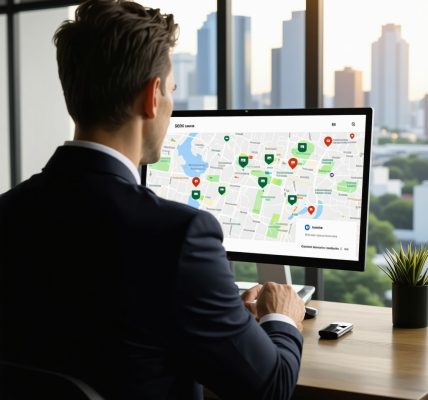Unlocking the Power of Hyperlocal SEO: A New Frontier for Local Dominance
In 2025, hyperlocal SEO has evolved into an indispensable strategy for businesses eager to dominate their immediate locales. This nuanced approach transcends traditional local SEO by targeting highly specific neighborhoods, zip codes, or even blocks, enabling brands to connect intimately with their most relevant audiences. As consumer behavior increasingly favors immediate, location-specific searches, mastering hyperlocal SEO becomes crucial for thriving in a competitive local marketplace.
Precision Targeting: The Art of Micro-Mapping Your Audience
Hyperlocal SEO demands a granular understanding of your business’s geographic footprint. By leveraging geo-fencing and localized keyword research, you can tailor content and listings to resonate with hyper-specific demographics. For example, a boutique bakery in Brooklyn can optimize for “fresh sourdough in Williamsburg” rather than just “bakery in New York,” capitalizing on the exact neighborhood’s search intent. This precision not only enhances relevance but also boosts click-through rates and conversions.
How Do Hyperlocal Keywords Differ From Traditional Local SEO Keywords?
While traditional local SEO keywords target broader areas like cities or counties, hyperlocal keywords hone in on smaller, highly specific regions such as neighborhoods, landmarks, or even street names. This shift in focus demands meticulous keyword research utilizing tools like Google Trends, Moz Local, or Ahrefs to identify micro-moments when consumers seek services right around the corner. Incorporating these keywords naturally into your Google Business Profile and website content significantly elevates your visibility in localized search results.
Elevate Your Google Business Profile With Neighborhood-Centric Content
Your Google Business Profile (GBP) serves as the nucleus of your hyperlocal SEO efforts. Optimizing GBP with neighborhood-specific descriptions, photos, and posts fosters a stronger connection with local searchers. Regularly updating your profile with hyperlocal offers or events can further engage your community and signal to Google your active presence in the area. For actionable insights on maximizing your GBP, explore how to optimize your Google Business listing effectively.
Harnessing Local Reviews and Citations to Cement Trust
In hyperlocal SEO, trustworthiness is paramount. Soliciting and showcasing reviews that mention specific neighborhood experiences enhances your local relevance and authority. Coupled with consistent citations across niche local directories and platforms, this practice strengthens your footprint in Google’s eyes. According to Moz’s Local Search Ranking Factors report, citation consistency and review signals remain top contributors to local search rankings, underscoring their importance in hyperlocal strategies.
Leveraging Hyperlocal Content Marketing for Community Engagement
Creating content that reflects local culture, events, or issues nurtures community engagement and generates organic backlinks. Blogs, videos, or social media campaigns spotlighting neighborhood stories or collaborations with local influencers can dramatically amplify your hyperlocal SEO impact. This authentic approach not only boosts rankings but also fosters brand loyalty among local consumers.
Call to Action: Share Your Hyperlocal SEO Success Stories
Have you implemented hyperlocal SEO tactics that transformed your local search visibility? Join the conversation by sharing your experiences in the comments below or explore further strategies to elevate your Google Business Profile at effective GMB ranking strategies. Your insights could inspire fellow local businesses to achieve unprecedented growth.
For a comprehensive understanding of local SEO dynamics and to stay ahead in 2025, refer to the authoritative Moz Local Search Ranking Factors report, which offers detailed analysis of the evolving signals shaping local search.
Integrating Voice Search Optimization in Hyperlocal SEO
With the surge in voice-activated devices, optimizing for voice search is becoming a critical component of hyperlocal SEO. Voice queries tend to be more conversational and often include local intents such as “near me” or specific neighborhood names. Tailoring your Google Business Profile and website content to address natural language queries enhances your chances of appearing in featured snippets and voice search results. Incorporating FAQs and long-tail hyperlocal keywords can significantly improve your local voice search visibility.
Dynamic Use of Google Posts for Real-Time Hyperlocal Engagement
Google Posts offer a valuable opportunity to engage your hyperlocal audience with timely updates, promotions, and events. By crafting posts that reference immediate neighborhood happenings or limited-time offers, you position your business as an active and relevant local player. Consistent posting not only encourages user interaction but also signals to Google’s algorithm your ongoing relevancy, which can boost your local rankings. For an in-depth guide on maximizing Google Posts, check out the ultimate guide to using GMB posts to improve SEO rankings.
What Are the Best Practices to Manage Hyperlocal Citations Without Overdoing Them?
Effectively managing hyperlocal citations involves a balance of consistency and diversity. Overloading your business listings with excessive citations on irrelevant or low-quality directories can dilute your authority rather than enhance it. Instead, focus on acquiring citations from reputable, niche-specific local directories, chambers of commerce, and community websites that resonate with your target neighborhood. Maintaining uniform business information (NAP — Name, Address, Phone number) across all platforms is essential to avoid confusion for both users and search engines. Tools like Moz Local and BrightLocal can help audit and streamline your citation strategy for optimal impact.
Optimizing for Google Maps Features Beyond Basic Listing
Google Maps offers functionalities such as Q&A, booking integrations, and product catalogs that hyperlocal businesses can leverage to increase engagement and conversions. Promptly responding to user questions in the Q&A section with neighborhood-specific details enriches your profile and builds trust. Integrating booking or appointment features tailored to your local clientele can streamline customer interactions. Additionally, showcasing products or services with clear, localized descriptions helps capture attention from Google Maps users actively seeking nearby solutions.
Utilizing Social Proof and Local Influencers in Hyperlocal SEO
Social proof extends beyond just reviews; endorsements from local influencers and community leaders can significantly amplify your hyperlocal SEO efforts. Collaborating with neighborhood bloggers, social media personalities, or local organizations to create content or co-host events can generate valuable backlinks and social signals. These partnerships enhance your brand’s authenticity and widen your reach within the targeted micro-community, driving more qualified traffic to your Google Business Profile and website.
For a comprehensive toolkit to enhance your local SEO and Google Business Profile presence, explore local SEO tools that boost your Google Business ranking. These resources provide actionable insights and automation capabilities to fine-tune your hyperlocal strategies efficiently.
Experts at Search Engine Land emphasize that “combining hyperlocal content with technical SEO and community engagement is key to outperforming competitors in local search results” (Search Engine Land, 2024).
Join the Conversation: Share Your Insights on Hyperlocal SEO Success
Have you experimented with any advanced hyperlocal SEO tactics that yielded measurable growth? Share your stories and tips in the comments below to help fellow local marketers refine their strategies. Also, consider exploring more on proven GMB ranking techniques to rank faster locally to expand your knowledge and stay ahead in the evolving landscape of local SEO.
Decoding Hyperlocal SEO Metrics: Beyond Basic Analytics to Precision Insights
For seasoned marketers, the challenge lies not just in implementing hyperlocal SEO tactics but in accurately measuring their effectiveness at the neighborhood level. Traditional analytics tools often aggregate data at the city or regional scale, masking the micro-trends that drive hyperlocal success. To transcend this limitation, advanced segmentation in Google Analytics and Google Search Console must be employed, focusing on user behavior metrics tied to specific zip codes or neighborhoods.
Utilizing UTM parameters with hyperlocal identifiers on promotional campaigns also facilitates granular tracking of traffic sources and conversion paths from localized efforts. Moreover, integrating heatmap tools such as Hotjar or Crazy Egg enables visualizing user engagement on pages optimized for hyperlocal keywords, revealing exactly how visitors from targeted micro-areas interact with your content.
How Can Businesses Accurately Attribute Conversions to Hyperlocal SEO Efforts?
Attributing conversions to hyperlocal SEO requires a multi-touch attribution model that considers the nuanced consumer journey through various local touchpoints. Leveraging CRM platforms integrated with location-based analytics allows businesses to track leads originating from neighborhood-specific campaigns. Additionally, implementing call tracking with local phone numbers tied to distinct hyperlocal promotions can pinpoint which areas deliver the highest ROI. Combining these insights with Google My Business Insights data provides a comprehensive picture of how hyperlocal SEO translates into tangible sales or inquiries.
Harnessing AI-Powered Tools to Refine Hyperlocal Content Personalization
Artificial Intelligence has revolutionized content creation and audience targeting, making it possible to tailor hyperlocal SEO content with unprecedented precision. AI-driven natural language processing tools can analyze local social media chatter, forums, and review platforms to identify trending topics and community sentiments. This data informs the creation of hyper-relevant blog posts, FAQs, and Google Posts that resonate authentically with neighborhood audiences.
Furthermore, AI-powered chatbots on your website can dynamically adjust messaging based on the visitor’s detected location, offering personalized promotions or information about local events. Such real-time personalization deepens engagement and enhances conversion potential. Tools like ChatGPT or Jasper combined with geotargeting plugins represent the cutting edge in hyperlocal content marketing automation.
Integrating Augmented Reality (AR) for Immersive Hyperlocal Experiences
Emerging technologies like Augmented Reality are opening new avenues for hyperlocal SEO by offering immersive local experiences that blend digital content with physical environments. Retailers and service providers can develop AR-enabled apps that guide users through neighborhood tours, showcase product demos in situ, or highlight limited-time local offers.
This innovative approach not only drives foot traffic but also generates unique user interactions and backlinks that bolster local search rankings. While still nascent, AR integration aligns perfectly with hyperlocal SEO’s emphasis on community engagement and precise geographic targeting.
Call to Action: Elevate Your Hyperlocal SEO With Cutting-Edge Analytics and AI Solutions
Ready to push the boundaries of your hyperlocal SEO strategy? Dive deeper into advanced analytics techniques and AI-driven content personalization to unlock hidden growth opportunities in your neighborhood markets. Explore comprehensive guides and toolsets at advanced local SEO with AI and analytics to stay ahead in this dynamic field.
For authoritative insights on location-based attribution models and emerging tech in SEO, consult the 2024 Search Engine Journal report on hyperlocal SEO attribution and analytics, which delves into state-of-the-art methodologies shaping the future of local search optimization.
Decoding the Future: AI-Driven Hyperlocal Content Customization
In the rapidly evolving landscape of hyperlocal SEO, leveraging artificial intelligence transcends mere automation—it empowers businesses to intricately decode neighborhood-specific consumer behaviors and sentiment. By utilizing AI-powered tools such as natural language processing and machine learning algorithms, marketers can identify emerging hyperlocal trends and craft bespoke content that resonates deeply with micro-communities. This strategic personalization not only elevates engagement but also drives superior conversion rates by speaking directly to local nuances.
Augmented Reality: Bridging Digital and Physical Hyperlocal Engagement
Augmented Reality (AR) integration represents a pioneering frontier in hyperlocal SEO, enabling businesses to offer immersive, location-based experiences that captivate users beyond traditional interfaces. Retailers and service providers can deploy AR applications tailored to specific neighborhoods—such as interactive storefront tours, localized product showcases, or geo-targeted promotional overlays—thereby fostering experiential connections that translate into increased foot traffic and brand loyalty. These interactive experiences also generate unique backlinks and user-generated content, enhancing local search visibility.

How Are AI and AR Technologies Revolutionizing Conversion Attribution in Hyperlocal SEO?
AI and AR technologies are redefining conversion attribution by enabling granular tracking and personalized user journeys within hyperlocal contexts. AI facilitates multi-channel attribution models that integrate location-based data, user intent signals, and engagement patterns, granting marketers a comprehensive view of the customer lifecycle across neighborhood touchpoints. Concurrently, AR interactions provide measurable engagement metrics—such as dwell time and interaction frequency—that can be directly linked to offline conversions. Integrating these data streams with CRM and Google Business Profile insights allows businesses to quantify hyperlocal SEO ROI with unprecedented accuracy.
Expert Perspectives and Authoritative Resources
For those seeking to delve deeper into the technical intricacies and strategic implementations of advanced hyperlocal SEO, the Search Engine Journal’s 2024 report on Hyperlocal SEO Attribution and Analytics offers a comprehensive exploration of cutting-edge methodologies. This resource provides actionable frameworks for integrating AI-driven analytics and AR-enhanced experiences into your hyperlocal marketing blueprint, ensuring your business remains at the forefront of local search innovation.
Call to Action: Transform Your Hyperlocal Strategy With Next-Gen Technologies
Are you ready to elevate your hyperlocal SEO initiatives by harnessing the power of AI and AR? Embrace these transformative tools to refine content personalization, boost user engagement, and achieve precise conversion tracking within your community. Visit advanced local SEO with AI and analytics today and embark on a journey toward hyperlocal marketing excellence.
Frequently Asked Questions (FAQ)
What exactly is hyperlocal SEO and how does it differ from traditional local SEO?
Hyperlocal SEO focuses on optimizing a business’s online presence for extremely specific, small geographic areas such as neighborhoods, blocks, or zip codes, rather than broader locations like cities or regions typical of traditional local SEO. This micro-targeting enables businesses to connect more intimately with nearby customers by tailoring content, keywords, and listings to hyper-specific local intent.
How can I identify effective hyperlocal keywords for my business?
Effective hyperlocal keywords are discovered through detailed research using tools like Google Trends, Moz Local, or Ahrefs, combined with an understanding of your business’s exact geographic footprint. Look for phrases that include neighborhood names, landmarks, street names, or local vernacular. Monitoring micro-moments—when users seek services immediately nearby—also helps in capturing relevant search terms.
Why is optimizing my Google Business Profile critical for hyperlocal SEO?
Your Google Business Profile acts as the central hub for local search visibility. By integrating neighborhood-specific descriptions, photos, posts, and offers, you signal to Google the precise areas you serve. Regular updates and engagement through features like Google Posts enhance your active presence and improve rankings within hyperlocal search results.
What role do local reviews and citations play in boosting hyperlocal SEO?
Local reviews that mention specific neighborhoods increase your business’s relevance and trustworthiness within that area. Consistent citations—accurate and uniform business listings across reputable local directories—reinforce authority and help Google associate your business with the targeted micro-location, improving local search rankings.
How does voice search optimization fit into hyperlocal SEO strategies?
Voice searches tend to be conversational and location-specific, often including phrases like “near me” or neighborhood names. Optimizing content and your Google Business Profile for natural language queries and long-tail hyperlocal keywords enhances your chances of appearing in voice search results and featured snippets, capturing an increasingly large segment of local search traffic.
Can AI tools really help personalize hyperlocal content effectively?
Yes. AI-powered natural language processing and machine learning tools analyze local social media, reviews, and community chatter to uncover trending hyperlocal topics and sentiments. This enables creation of highly relevant, personalized content that resonates with specific neighborhood audiences, improving engagement and conversions.
What are the best practices for managing hyperlocal citations without diminishing SEO value?
Focus on quality over quantity by securing citations from reputable, niche-specific local directories and community websites relevant to your hyperlocal area. Maintain consistency in your Name, Address, and Phone number (NAP) across all platforms to avoid confusion. Avoid low-quality or irrelevant listings that can dilute your authority.
How can augmented reality (AR) enhance hyperlocal SEO efforts?
AR enables immersive experiences such as interactive neighborhood tours, localized product demos, and geo-targeted promotional overlays. These experiences increase user engagement and foot traffic, generate unique backlinks, and create shareable content that boosts local search visibility by blending digital content with physical environments.
What analytics techniques help measure hyperlocal SEO performance accurately?
Utilize advanced segmentation in Google Analytics and Google Search Console to analyze user behavior at the neighborhood or zip code level. Employ UTM parameters with hyperlocal identifiers on campaigns for granular traffic tracking. Heatmap tools visualize visitor engagement on hyperlocal content. Integrate CRM and call tracking with local phone numbers for precise conversion attribution.
How do AI and AR technologies improve conversion attribution in hyperlocal SEO?
AI integrates multi-channel attribution models combining location data and user intent to map detailed customer journeys within neighborhoods. AR provides measurable engagement metrics like interaction frequency and dwell time linked to offline conversions. Combined with CRM and Google Business Profile insights, these technologies offer comprehensive, accurate ROI measurement for hyperlocal efforts.
Trusted External Sources
- Moz Local Search Ranking Factors Report: This annual report provides in-depth analysis of local SEO ranking signals, including citations, reviews, and Google Business Profile optimization, essential for understanding hyperlocal SEO mechanics.
- Search Engine Journal (SEJ) – Hyperlocal SEO Attribution and Analytics (2024): Offers cutting-edge insights on integrating AI-driven analytics and AR technologies to track and optimize hyperlocal SEO performance.
- Search Engine Land – Local SEO and Hyperlocal Strategies (2024): Provides expert commentary and practical guides on combining content marketing, technical SEO, and community engagement for hyperlocal dominance.
- BrightLocal: A leading platform for auditing and managing local citations and reviews, critical for maintaining citation consistency and reputation in hyperlocal SEO.
- Google Business Profile Help Center: Official resource detailing features like Google Posts, Q&A, booking integrations, and product catalogs that can be leveraged for hyperlocal SEO enhancement.
Conclusion: Mastering Hyperlocal SEO for Targeted Local Market Success
Hyperlocal SEO represents the forefront of local search marketing, enabling businesses to connect with their immediate communities through finely tuned geographic targeting, neighborhood-centric content, and real-time engagement. By embracing advanced strategies—ranging from AI-driven content personalization and precise analytics to immersive AR experiences and meticulous citation management—businesses can significantly elevate their local visibility and consumer trust. Optimizing your Google Business Profile with hyperlocal nuances, integrating voice search tactics, and leveraging social proof further solidify your presence in hyper-specific markets.
As the digital landscape evolves, adopting these innovative hyperlocal SEO practices will empower your business to outperform competitors and capture the valuable micro-moments that drive conversions in 2025 and beyond. We invite you to apply these insights, share your experiences, and explore further expert resources to continuously refine your local search strategy for maximum impact.
Ready to transform your local presence? Share your hyperlocal SEO success stories, comment below, and dive deeper into advanced strategies through our recommended expert guides to propel your business to neighborhood-level dominance.




The detailed breakdown of hyperlocal SEO strategies in this guide is truly insightful, especially the emphasis on micro-mapping audiences and tailoring content to very specific neighborhoods. In my experience running a small café in a mid-sized city, refining our Google Business Profile with neighborhood-centric photos and posts made a noticeable difference in drawing local foot traffic. What stood out most to me was the idea of leveraging voice search optimization—this is something I hadn’t prioritized before but now see as critical given how many customers use mobile voice assistants for “near me” queries.
Additionally, the point about balancing citation quality over quantity is crucial. I’ve seen some businesses try to maximize citations indiscriminately, which can hurt credibility rather than help it. Instead, I found that focusing on reputable local directories and ensuring NAP consistency really paid off in terms of Google rankings.
I’m curious how others approach integrating AI tools for content personalization within such localized contexts? Have you noticed that AI-driven content still feels authentic to neighborhood audiences, or is there a risk of it sounding too generic? It would be great to hear how businesses balance this advanced technology with genuine local engagement.